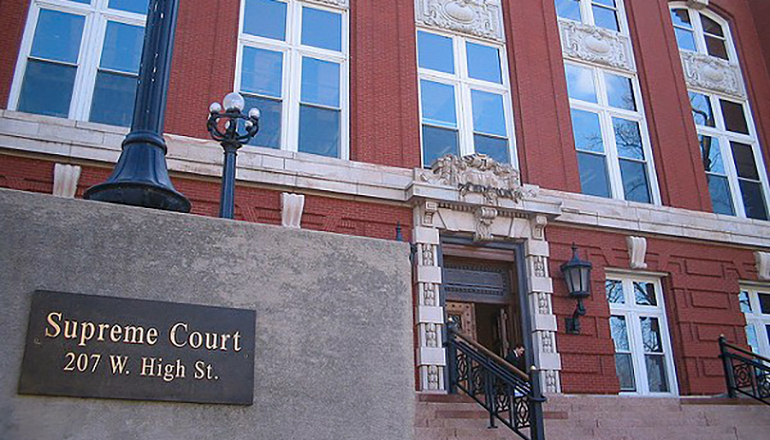One of the cases being argued today at the Missouri Supreme Court originated in Livingston County. The Supreme Court agenda indicates that judges will hear an appeal in the case of Aaron Hecker versus the state of Missouri. This appeal involves allegations of ineffective assistance of counsel, referring to an attorney who represented him.
A case summary provided by the Public Information Office of the Supreme Court states that Aaron Hecker of Chillicothe was charged as a prior and persistent offender with two counts of second-degree assault, resisting arrest, unlawful possession of a firearm, and armed criminal action following an altercation with Chillicothe police officers.
Online records reveal that Aaron Dorney Hecker pleaded guilty to the charges and received a 19-year sentence from the Missouri Department of Corrections, which began in July 2019. The arrest was a result of incidents in Chillicothe in August 2017. Private counsel initially represented Hecker but later sought to withdraw, claiming Hecker had discharged him. This counsel then filed a notice stating that Hecker was eligible for services from the public defender because his parents had been covering the private counsel’s fees. However, the public defender declined to represent Hecker due to his prior engagement with private counsel. Hecker then represented himself. Later, the private counsel filed a limited entry of appearance, stating he would represent Hecker if he pleaded guilty but not if the case went to trial.
On the same day, the circuit court held a plea hearing. As part of the plea agreement, the state dropped all charges except for the second-degree assault and resisting arrest. When asked if he had taken any drugs before the hearing, Hecker mentioned several prescriptions he had been on for a month that made him “a little bit” drowsy. The circuit court accepted his guilty plea. Before sentencing, the private counsel told the circuit court he advised Hecker against participating in a sentencing assessment report due to Hecker’s mental health history. The court sentenced Hecker to 19 years. Hecker later sought postconviction relief, alleging his private counsel didn’t investigate his competence to plead guilty or be sentenced, didn’t explore his mental-health-based defenses, didn’t inform him about the availability of such defenses, and didn’t notify him of a conflict of interest. At a hearing, a psychiatrist testified that Hecker’s mental health conditions made him incompetent to plead guilty as he couldn’t rationally understand the proceedings. The circuit court denied Hecker’s postconviction motion. While it found the psychiatrist’s testimony credible, it gave more weight to the plea transcript and the private counsel’s testimony. Hecker is now appealing.
This case raises several questions for the Court. The primary concern is whether the private counsel was ineffective in failing to sufficiently investigate Hecker’s competence to be sentenced. Related issues include whether a reasonable attorney would have had Hecker evaluated by a mental health expert, whether the private counsel’s actions met the American Bar Association’s standards, and if the failure to investigate Hecker’s competence harmed him.
The subsequent question is whether the private counsel was ineffective in not thoroughly investigating Hecker’s competence to plead guilty, including the possibility that Hecker was not competent to plead guilty at the hearing.


